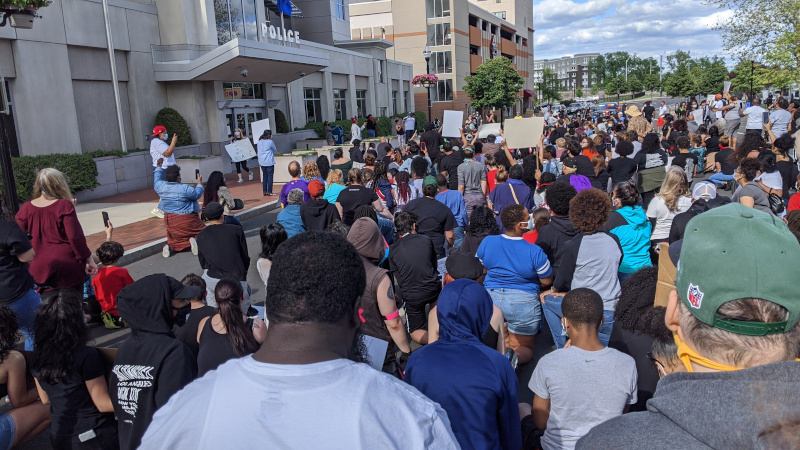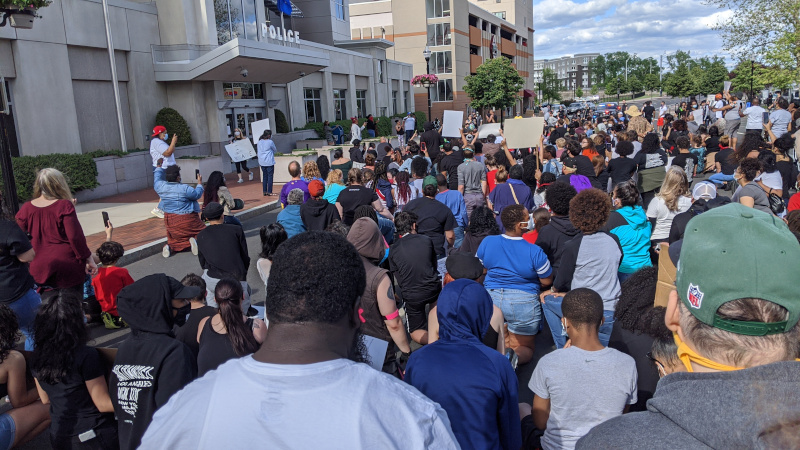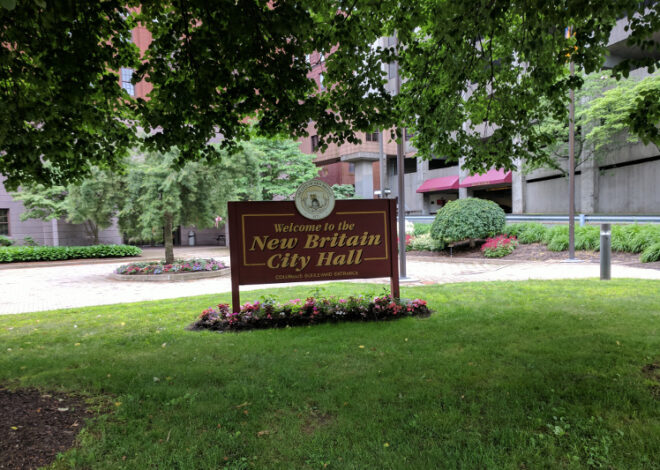A Council committee will meet to consider the proposed advisory-only “independent” “Police Civilian Review Board” appointed entirely by the mayor.
The committee also appears set to consider an amended version of the proposal, being offered by Ald. Francisco Santiago (D-5). That amendment would change many parts of the proposal that have come under criticism from community advocates.

The committee, the Council’s Consolidated Committee, is to meet on Thursday, October 1, 2020, at 7:00pm.
Calls for the establishment of a community review board for the city’s Police were made as massive protests occurred nationwide, including in New Britain, in the wake of the killing of George Floyd by police in Minneapolis. The killing of Floyd, Ahmaud Arbery, Rayshard Brooks and other African Americans have sparked vigorous protests against ongoing racism in the nation.
A proposal to create a Police Civilian Review Board was introduced in the City Council in August. But that proposal has come under criticism from community advocates, who want a new community police review board chosen by the community and given subpoena investigatory powers in the city ordinances. The proposed ordinance does neither. The police civilian review board, as proposed, would also be advisory-only.
Ald. Santiago’s proposed change to the plan would address many, but not all, of the things that community advocates criticized in original Council proposal.
Santiago’s proposed amendment appears to empower the review board to initiate its own investigations, and it would expressly give the board power to issue subpoenas for evidence and compel witnesses.
The changes proposed by Santiago also appear to change the emphasis of valid reasons why people can file complaints with the review board. Complaints could be considered alleging “misconduct” by police officers, instead of having to rise to “excessive force”, as the August Council plan proposed. Santiago’s proposal would also remove a “fabricated complaints” provision warning people against making complaints that might be dismissed.
The changes Santiago is offering would allow the review board to make decisions by a majority vote, rather than unanimous, as the original proposal says. It would also allow the board to hire staff to assist with its work.
The proposal would, however, would maintain the status of review board decisions as advisory, saying that it could, “provide recommendation(s) of appropriate discipline,” with the Police Chief making the disciplinary decisions.
Santiago’s proposal would also change the way that the review board be selected. The current proposal would provide that the entire board be appointed by the mayor. Under his proposal, both Republicans and Democrats on the Council would choose a certain number of members of a nine-member board board. The proposed change would appear to mean that the majority party on the Council would choose six members of the review board and that the minority party would choose three. Republicans are currently in the majority on the Council.
Santiago’s proposed change would also require that review board members be residents of New Britain, and would exclude current or former New Britain Police officers or their immediately families from being on the board. The change would also appear to remove the requirement that review board members have a police background check, a provision of the August proposal that appears to put the Police Department in the position of reviewing whether or not people would be allowed to serve on the board responsible for reviewing the police.
Many of the provisions of Santiago’s amendment appear to utilize more of the powers given to community police review boards by the state police accountability law approved by the state legislature this summer.
In July, the New Britain Racial Justice Coalition and the Black Ministerial Alliance of New Britain, with the support of the NAACP New Britain Branch, the People’s Coalition of Central Connecticut and others called for a “People’s Agenda” in New Britain. One of the key items the People’s Agenda was a call for,
The creation of a Civilian Review Board with subpoena powers whose membership is selected by the community.
The call for the police review board to be appointed by the community appears reinforced the new state police accountability law, which says that allow local legislative bodies, which the City Council is in New Britain, are empowered by the state law to choose how civilian police review boards are appointed. The state law provides that the review board can be, “elected or appointed,” as the City Council chooses, saying that,
The legislative body of a town may, by ordinance, establish a civilian police review board. The ordinance shall, at a minimum, prescribe: (1) The scope of authority of the civilian police review board; (2) the number of members of the civilian police review board; (3) the process for the selection of board members, whether elected or appointed; (4) the term of office for board members; and (5) the procedure for filling any vacancy in the membership of the civilian police review board.
The announcement of the October 1st committee meeting says that,
Due to current public health concerns, this meeting will not be open to the public. Members of the public may vie a live broadcast of the meeting online via the livestream link: www.newbritainct.gov/meetings.
A public hearing on the proposal was held earlier in September.
The Council’s Consolidated Committee has the option of amending the original proposal submitted in August, and it has the option to refer the proposal back to the full Council for possible final approval as a city ordinance (local law).




